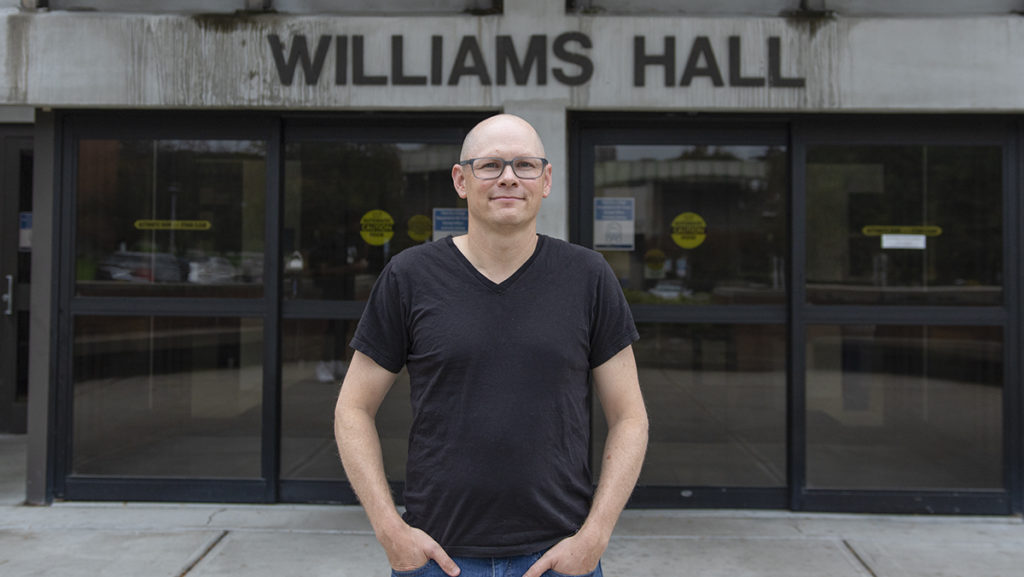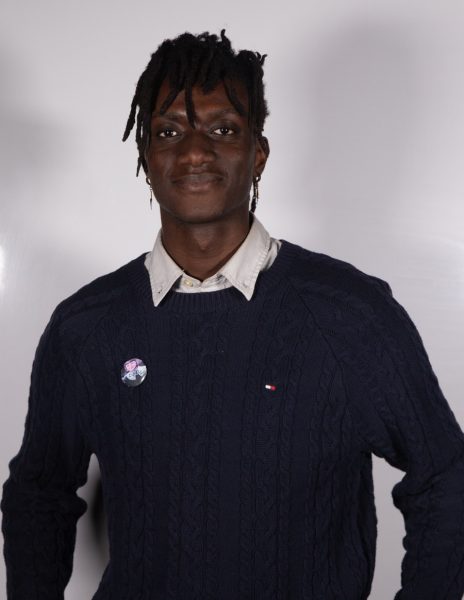Doug Turnbull, associate professor in the Department of Computer Science at Ithaca College, gave a keynote address at the IndabaX Nigeria conference Sept. 24. Deep Learning IndabaX is an organization that works to support countries in Africa to develop Artificial Intelligence (AI) technology and machine learning research in the continent. Turnbull’s address “Why Research Music?” explored the capabilities of machine learning and music recommendation to help provide exposure for local artists.
Contributing writer Caroline Grass spoke with Turnbull about his machine learning and music research and his keynote address.
This interview has been edited for length and clarity.
Caroline Grass: What is machine learning?
Doug Turnbull: Artificial intelligence is sort of the broad umbrella, where we try to get computers to do intelligent things that hopefully help us. Machine learning is statistical artificial intelligence, so it’s using past data to make predictions about the future. … Within machine learning I study recommender systems, which is a problem within machine learning, that says given a user’s past interests in movies or music, let’s recommend new items like songs or artists or movies that you think that user might be interested in exploring.
CG: How did you become interested in the combination of music with this recommender system?
DT: I grew up here in Ithaca … I played in high school rock and roll bands. I was also pretty good at using computers to write programs … so I went off to college and I started studying computer science. … I had a class my junior year with a professor who is making computer music and building all these cool music installations. … So I went off to grad school and I started studying the field of music information retrieval, which is an academic discipline that uses music technology to analyze music.
CG: How did you become involved with the IndabaX conference?
DT: The music information retrieval community has a society called the International Society for Music Information Retrieval … There’s a mentoring program for helping people connect from traditional places where we study music information retrieval. … I was connected with a researcher named Sakinat [Oluwabukonla Folorunso]. She was running a machine learning conference in Nigeria called IndabaX. And one of the things she wanted to do through our collaboration was introduce the concept of music recommendation and music analysis to this machine learning community in Nigeria … You can imagine that there are lots of talented Nigerian musicians and building an application, for and by Nigerian people, to support their music would be a great way to take some of the work we’ve been doing, but make it local and valuable in that community.
CG: In the abstract of your talk, you said there was a growing community of music information retrieval researchers, who makes up that community?
DT: It used to be a purely sort of fringe academic community, but in recent years with the success of music companies like Spotify … [and] a lot of the companies that make recording software have started using … the academic contributions that our community has been making. So we’ve seen a lot of movement … to this more half-academic, half-commercial community where there’s definitely more money coming into the society … it means that our work has become increasingly relevant, but it’s also meant that we’ve taken a focus on commercial problems.
CG: You have said there isn’t always fair exposure to music, so how does machine learning and tailored music recommendation systems help change this?
DT: We had thought when we obtain these things we call celestial jukeboxes like Spotify or Apple Music, that would be providing … on demand access anytime anywhere in your smartphone to, you know, millions of songs by millions of artists, and that would be a great way to be a more democratic distribution of music. But it turns out that it’s actually … consolidated the focus on just a few famous artists more than we thought. We thought it would level the playing field, but it’s actually only made the rich get richer.









